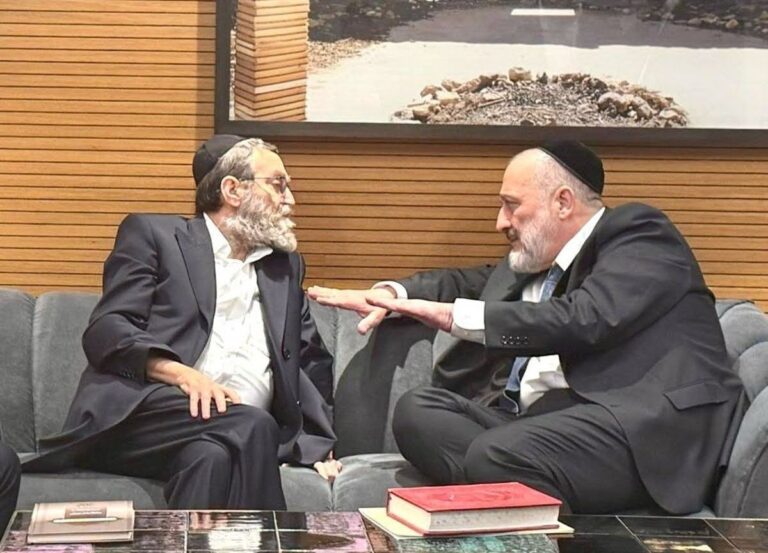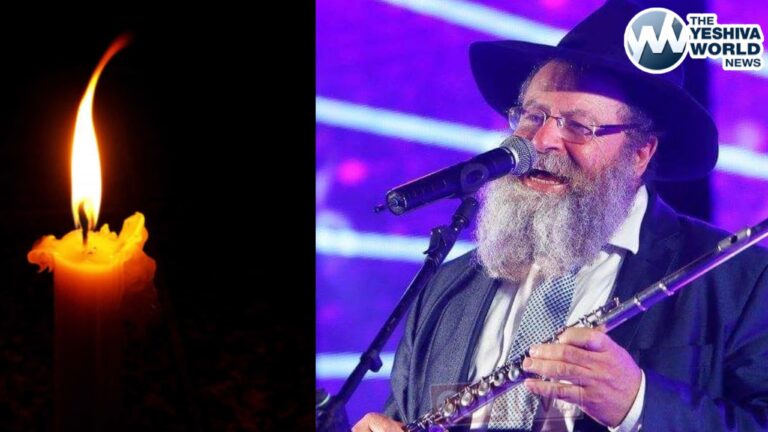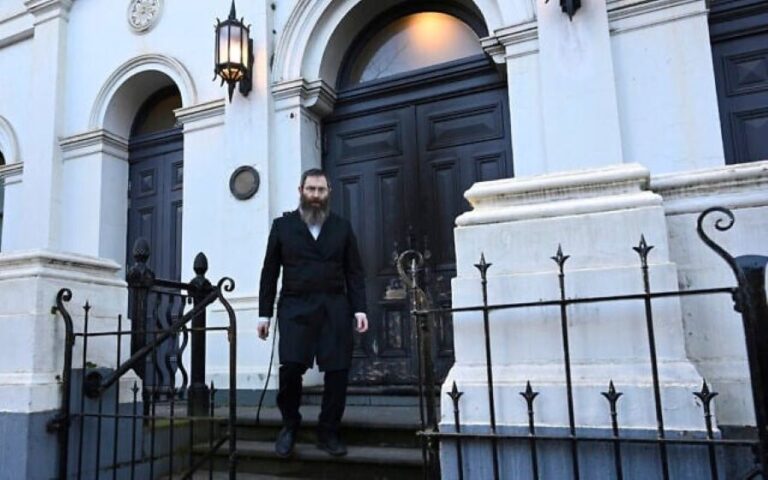 When the Schijveschuurder children learned of the loss of their parents in the Sbarro Restaurant attack on August 9, 2001, they did not know if the government would be there for them, to assist them in rebuilding their shattered lives, to assist them in surviving without parents. Ironically, in time, they and others learned that due to a fault in the law, children who lose both parents in terror attacks are entitled to fewer benefits than children who lose one parent to terror.
When the Schijveschuurder children learned of the loss of their parents in the Sbarro Restaurant attack on August 9, 2001, they did not know if the government would be there for them, to assist them in rebuilding their shattered lives, to assist them in surviving without parents. Ironically, in time, they and others learned that due to a fault in the law, children who lose both parents in terror attacks are entitled to fewer benefits than children who lose one parent to terror.
According to attorney Na’ama Tzoref (Halevy), the problem stems from the fact that the civilian law is a copy of a military law. Naomi knows, for she too lost her parents to terror. Her parents, Rafi and Helena were killed when a terrorist disguised as a frum Jew blew himself up in their vehicle near the entrance to Kedumim on March 30, 2006.
“The army law took into consideration a young soldier who falls in the line of duty and leaves parents, or a reservist who is killed and leaves a widow and children. The original law makes no provision for children who lose both parents,” attorney Na’ama Tzoref Halevy explains.
The fault lies with the fact that the benefactor is usually the widow or widower, but when there are no parents living, the state keeps the money. The problem is exacerbated among orphans of terror who were 21 or older at the time of the death of the parents. They are not entitled to any long-term pension from the government – rather they are left on their own to worry about rent, funds for a wedding or education, orphans and without any means.
“We are the victims of a modern-day Holocaust” states Shvual (23) and Meir (26) Schijveschuurder, who lost their parents and three siblings in the suicide bombing attack. “Just like the murderers took half of our family from us, the government left the other half to fend for themselves”.
They explain they are left to fend for themselves and they know families of victims who lost one parents and they receive more government assistance.
Batsheva Sadan (Horowitz), whose parents Eli and Dina were murdered on Shabbos in Kiryat Arba on March 7, 2003, concurs. “My parents were not wealthy and did not own much of value. Since they did not plan to be murdered, they left us a negative bank balance. It is catastrophic. As soon as the pillars of the family are gone, all seems lost. Then you believe the state will help, but soon realize you are on your own.”
Tzvi Yehuda Dikstein also speaks from personnel experience, the pain of loss. His parents, Yosef and Chana, in their 40s, were murdered near Chevron on July 26, 2002, on an erev Shabbos as they drove from their Shomron home in Psagot. Also taken from Yehuda was his 9-year-old brother, Shvu’el. Tzvi Yehuda at the time was 20. He was the head of the family, having to care for eight additional siblings ranging in age from 19 to 2.
All total, 19 families fell victim to the horrific reality of children losing both parents in a terror attack during the years described as the First and Second Intifadas. The problem is not a new one but it is finally coming to the surface.
Tzvi Yehuda explains he was ‘lucky’ since all the children were under 21 at the time, entitling each to a monthly government stipend of NIS 3,600 until reaching the age of 21. He goes on to explain for the orphans over 21, they receive NIS 2,900 a month for two years in addition to a one-time gift of NIS 4,600, and that ends the government’s role in rehabilitating their shattered lives. Tzvi Yehuda questions just how they are expected to pay rent, obtain an education, pay for daycare, a wedding or conduct a life, including meals from one day to the next.
Shvual Schijveschuurder explains “sometimes, it gets worse, like in our case. You learn that your parents’ pensions are not paid out in the event of their deaths as a result of terror so we even lost that. The policy is based on the belief that the state will provide for us.” Interestingly and ironically, the Schijveschuurder orphans are Dutch citizens and if they opted to, they could have relocated to Holland where they would have received 1,800 euro a month even though the attack which shattered their family occurred in Israel. However, they decided to remain in Israel and were even compelled to pay for some of their psychological rehabilitation following the attack.
Menashe Gavish, 29, explains that as soon as both parents are murdered, the elder children become the pillar of strength for the orphans. On March 28, 2002, terrorists successfully infiltrated Elon Moreh while the Gavish family of Kedumim was visiting. Murdered were Rachel and David, the parents, along with a grandfather, Yitzchak Kenner, and Menashe’s older brother Avraham, 25. Survivors included Avraham’s wife Na’ama and their daughter Darya, as well as the Gavish children, Menashe (23), Avigdor (19), Tzofia (18), Leah (17), Assaf (14), and Yeshurun (12).
“It means taking care of bank accounts, finances, parent teacher meetings, to visit the younger sibling in yeshiva or the army, to make certain everyone attends the army graduation ceremonies of the siblings, and to keep the family running,” explains Menashe. “It changes everything” he adds. “Shortly before the attack I was married, starting out my family and suddenly, we were living together with all the children. It is not easy. It is not natural. It is not the way it is supposed to be.”
Yeshurun explained that in a normal home, a student remains with parents to save expenses, to avoid paying rent and to get free food. “We did not save rent and did not have free food. No one paid for us and no one gave us anything except a one-time government grant. We do not have a strong lobby. We do not have anyone representing our interests in Knesset. Therefore, we feel it is simple for the government to throw us to the wolves. At Bituach Leumi (National Insurance Institute) they explained to us that if a parent loses two children chas v’sholom, they receive 200% disability. But if a child loses two parents, they get less than 100%”.
Benny and Hila Lipskind had a similar case. Hila’s parents, Dov and Rachel Kol were murdered on July 25, 2005 near Kissufim Crossing, having spent Shabbos with Hila’s aunt, Rachel’s sister, then a resident of Ganei Tal in Gaza. Hila had to care for her siblings, Tamar (17) and Yonatan (15), not to mention her newborn daughter, Hallel.
The parents were on their way home when terrorists snuffed out their lives, leaving others wounded. [They were the last fatalities before the government implemented the expulsion and uprooting of the Gaza Jewish communities].
“We feel like we lost three parents in the attack, not two,” they explain. “The third parent is our country, which abandoned us.”
Benny explains that “if you apply for a reduction in arnona property tax you are told that if one of the parents is dead, you can receive a deduction but if both parents are deceased, there is no one to give the reduction to.” It may sound absurd, but sadly true.
When the young couple asked for a tax break on the price of a new vehicle to assist in keeping the family together, they were told they would require a special dispensation.
Attorney Tzoref, 33, explains “while it is not proper to say, it is more cost-efficient for the state if both parents are murdered. If one parent survives, the state has to begin taking care of the family. We are left behind – tossed to the stormy sea and left to find the life preserver on our own.”
Tzoref recently celebrated a small victory. The law compels Bituach Leumi to give a grant to terror victims to assist in paying for their wedding and to find and establish a home. Tzoref petitioned Bituach Leumi for a double grant for victims who lost both parents. Bituach Leumi officials stated that while they would like to assist, the law prohibits them from doing so. Tzoref turned to the Labor Court and emerged victoriously. Bituach Leumi decided to appeal the decision, but following the intervention of the welfare minister, Bituach Leumi backed down. [By the way, they have yet to see money, which is promised to arrive in another six weeks or so].
Tzoref calls it a “war of attrition”.
“First, any request is met with a ‘no’ and only after a fight can we get what we are entitled to.” She goes on to explain that Bituach Leumi pays terror victims to erect a gravestone. When they requested a double grant to erect one for each parent, they were told they would require a special dispensation. “They rely on the fact that most people will not fight. They try to break you down” she explains matter-of-factly.
“At first, you blame it on a clerk, believing it is an error. Then you try again and again, a second and third time – until finally, you realize it is a policy decision.”
Tzoref gives yet another example, regarding her sister who is in her third year of schooling and is waiting for Bituach Leumi to reimburse her for the previous year. Now Bituach Leumi is demanding to see her transcript, her grades for last year.
Responding to the query, Bituach Leumi officials stated that they must be certain the funds are being used for the intended purpose, explaining the demand for her grades.
“I have lost my faith in this country and its politicians” stated Shvual. “They will have to work very hard to earn my trust again one day.”
His brother Meir tries to break a smile, adding; “Don’t be a pessimist. The state has now been ordered to pay Holocaust survivors and it only took about 60 years! Just think, in only 53 more years, they will begin to meet our needs too.”
(Yechiel Spira – YWN Israel)











2 Responses
How very sad, on top of the tragedies, R”L, L”A, they suffered through!
Yimalei Hashem chisronam keifel kiflayim, and may no one ever need a parent-substitute, R”L, for any reason.
Gimar Chasima Tova to all of Klal Yisrael.
An article written about the help for victims of terror especially the families above, is not complete without mentioning the work of One Family Fund. It is a great organization which has kept these families together more than any person has. (In fact the government sends people to One Family for help.